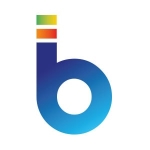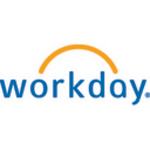Some of the most outstanding features of OBIEE is both its scalability and dependability. OBIEE is worthy of its ‘Enterprise’ moniker as it can handle any amount of end-to-end data thrown at it. But these strengths can only be realized if the business and engineering teams work diligently to define not only the various levels of data aggregation, but also clearly define the meta-data in order to establish efficient drill-down hierarchies and relationships.
With proper table design plus good data governance, OBIEE can serve as the central delivery mechanism that brings insight into the business layer of almost any size of company.
With a wide array of internal customers, OBIEE has helped us provide a many-to-one Business Intelligence relationship. By transforming the company’s performance data into various dashboard perspectives, each information consumer can select a customized dashboard view. The result is to empower the business user to ‘self-serve’ some of their regular and most important reporting needs.
This reduces the amount of noisy communication between the business and OBIEE power users within the company. It increases the speed of analysis, and it provides an unwavering consistency across the dashboards and downloaded reports.
In today’s business intelligence environment, nimbleness and flexibility are valued on par with scalability and dependability. Historically, Excel was perfectly aligned with the former two while enterprise solutions held firmly to the latter two. It was the business analyst’s conundrum to work seamlessly between the micro- and macro-solutions. Now, BI entrants into the market are challenging that paradigm, providing tools that span all four characteristics and this is where OBIEE is looking somewhat dated.
OBIEE requires a lot of metadata customization that can only be achieved by individuals with very specific skill sets. This includes Oracle developers, web developers (including XML), Siebel, and more. These skill sets may even reside in different departments yet the business user depends on each to ensure that their KPI dashboard is updated with the latest segmentations and that the drill-down reports open up quickly. These challenges may ease somewhat with the introduction of Oracle's Visual Analyzer, however it is too young a product to tell how fast it will move up the development curve.
As the BI space continues to evolve, many business analysts are focusing more on complementary solutions that, although they may not be as enterprise-worthy in scope, are extremely flexible, easy to customize, and can get the analyst the needed insight without having to overcome some of the development hurdles in OBIEE.
OBIEE is as powerful as the Oracle backbone upon which it runs, but it will not serve the business as effectively as it could if there is not a commitment to align engineering resources with the needs of the business. With the right skill sets and a defined corporate data governance strategy, OBIEE can be a powerful BI engine for almost any company.
Over the past few years, OBIEE has become less important for us in the analytics group. In order to lead a proactive data discovery group, OBIEE just doesn’t provide enough flexibility. We are constantly blending various data sources together, creating on-the-fly segmentations, and iterating through potential dashboards. With OBIEE in a production environment, the business users cannot wait for the slowly moving development pipeline, QA, and scheduled code releases. As a result, we develop our own datasets and analysis on a production copy of the DW. We do our own QA and will road test the production style report while the production version works its way into the next production release.
I think OBIEE’s sweet spot is a 20,000+ person financial services firm with a BI group divided into experts in Oracle, Java, and XML. The dev group is represented by business analyst/liaisons with the business units. If a manager needs a new dashboard, they meet with the liaison, specify what they need. The analyst takes it back to the BI group and then the developers build it out over the next month.
This is where a BI tool like Tableau has helped us fill this gap. Over the last two years, Tableau is now becoming the de facto analysis/visualization tool for us.















